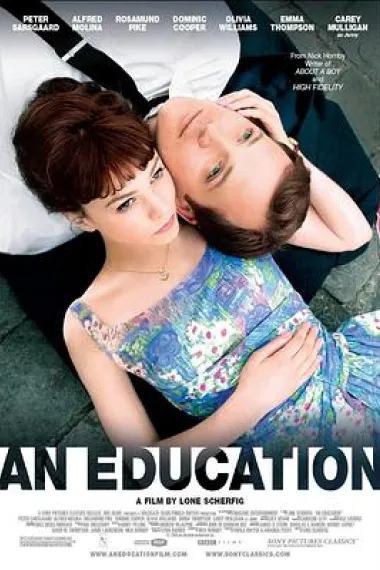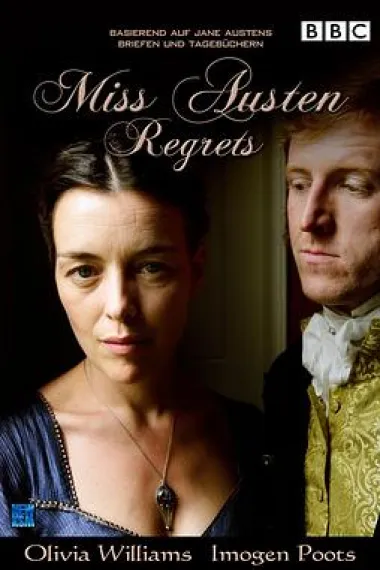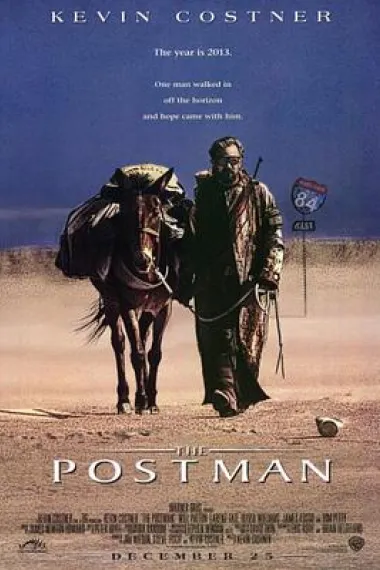
奥莉维亚·威廉姆斯 (1968) Olivia Williams
演员 配音
Olivia began her career on the stage at the RSC and The National Theatre, breaking into TV with the Andrew Davies adaptation of Emma (1996).
From a damp basement in Camden Town she won the role of Abby in the $120 million blockbuster The Postman (1997) starring alongside Kevin Costner. In the following year, Olivia was cast as Rosemary Cross in Rushmore (1998), co-starring Bill Murray, from acclaimed filmmaker Wes Anderson and producer Barry Mendel.
Her association with Mendel brought her to the attention of M. Night Shyamalan and the role of Anna Crowe in The Sixth Sense (1999) which would become a defining moment in Olivia's career. The box office success of the M. Night Shyamalan film, starring Bruce Willis, Haley Joel Osment, and Toni Collette, saw it become one of the highest grossing films of all time.
In the subsequent years Olivia starred in The Body (2001) with Antonio Banderas, in Below (2002) from Dimension Films, and in the $100 million big screen adaptation of Peter Pan (2003) from Universal Studios.
Shortly after, in The Heart of Me (2002), with Helena Bonham Carter and Paul Bettany, Olivia's performance won her Best Actress at the prestigious British Independent Film Awards.
Olivia then took on the challenge of playing Jane Austen in the BBC film, Miss Austen Regrets (2007), quickly followed by another lead role, as Miss Stubbs, in the Oscar-nominated An Education (2009).
Based on these performances, Joss Whedon cast Olivia as Adelle DeWitt in Dollhouse (2009), the cult television series from 20th Century Fox that ran for two seasons.
Olivia returned to cinema screens, playing Ruth Lang in The Ghost Writer (2010) with Pierce Brosnan and Ewan McGregor. Olivia's performance earned her ALFS and NSFC awards for Best Supporting Actress.
Joe Wright cast Olivia in his next two films, Hanna (2011), alongside Cate Blanchett and Saoirse Ronan, and in Anna Karenina (2012) with Jude Law and Keira Knightley.
In the same year, Olivia joined the ensemble cast of Bill Murray, Olivia Colman, and Laura Linney, in the hit film Hyde Park on Hudson (2012) from director Roger Michell.
In television, Olivia then landed lead roles in Case Sensitive (2011), and Manhattan (2014), both of which received critical acclaim.
During this period, Olivia was also cast in the features, The Last Days on Mars (2013), Seventh Son (2014) with Jeff Bridges, Julianne Moore, and Alicia Vikander, Maps to the Stars (2014) directed by David Cronenberg, and playing Lady Churchill in Victoria & Abdul (2017) directed by Stephen Frears.
Returning to television, Olivia starred as Lady Priscilla Hamilton in the period drama, The Halcyon (2017), and as Emily Burton Silk in both seasons of Counterpart (2017), with co-star J.K. Simmons.
Olivia has always had a deep passion for theatre. At the RSC, Olivia has performed in Misha's Party, Wallenstein, The Broken Heart, The Wives Excuse, and Peer Gynt. Olivia's expansive stage career at the National Theatre includes such shows as Waste from director Roger Michell, Love Labour's Lost directed by Trevor Nunn, Richard III including its US tour, Happy Now?, Tartuffe, and Mosquitoes directed by Rufus Norris. Along with these, Olivia also starred alongside Matthew Fox in the Neil LaBute play In A Forest Dark and Deep at the Garrick Theatre.
During recent years, Olivia has starred as Lavinia Bidlow in the HBO show The Nevers (2021), created and directed by Joss Whedon, and as Catherine in The Father (2020), with Anthony Hopkins and Olivia Colman.
In the Parkland Pictures feature The Trouble with Jessica (2023) Olivia starred alongside Rufus Sewell Alan Tudyk and Indira Varma. This was immediately followed by Olivia's 2024 feature Another End (2024) directed by Piero Messina and co-starring Gael García Bernal.
Most recently, Olivia played the role of Camilla Parker Bowles in Seasons 5 and 6 of the global hit TV show The Crown (2016) streaming on Netflix.
Olivia will next be seen in the HBO Max TV show Dune: Prophecy (2024) playing the role of Tula Harkonnen.
From a damp basement in Camden Town she won the role of Abby in the $120 million blockbuster The Postman (1997) starring alongside Kevin Costner. In the following year, Olivia was cast as Rosemary Cross in Rushmore (1998), co-starring Bill Murray, from acclaimed filmmaker Wes Anderson and producer Barry Mendel.
Her association with Mendel brought her to the attention of M. Night Shyamalan and the role of Anna Crowe in The Sixth Sense (1999) which would become a defining moment in Olivia's career. The box office success of the M. Night Shyamalan film, starring Bruce Willis, Haley Joel Osment, and Toni Collette, saw it become one of the highest grossing films of all time.
In the subsequent years Olivia starred in The Body (2001) with Antonio Banderas, in Below (2002) from Dimension Films, and in the $100 million big screen adaptation of Peter Pan (2003) from Universal Studios.
Shortly after, in The Heart of Me (2002), with Helena Bonham Carter and Paul Bettany, Olivia's performance won her Best Actress at the prestigious British Independent Film Awards.
Olivia then took on the challenge of playing Jane Austen in the BBC film, Miss Austen Regrets (2007), quickly followed by another lead role, as Miss Stubbs, in the Oscar-nominated An Education (2009).
Based on these performances, Joss Whedon cast Olivia as Adelle DeWitt in Dollhouse (2009), the cult television series from 20th Century Fox that ran for two seasons.
Olivia returned to cinema screens, playing Ruth Lang in The Ghost Writer (2010) with Pierce Brosnan and Ewan McGregor. Olivia's performance earned her ALFS and NSFC awards for Best Supporting Actress.
Joe Wright cast Olivia in his next two films, Hanna (2011), alongside Cate Blanchett and Saoirse Ronan, and in Anna Karenina (2012) with Jude Law and Keira Knightley.
In the same year, Olivia joined the ensemble cast of Bill Murray, Olivia Colman, and Laura Linney, in the hit film Hyde Park on Hudson (2012) from director Roger Michell.
In television, Olivia then landed lead roles in Case Sensitive (2011), and Manhattan (2014), both of which received critical acclaim.
During this period, Olivia was also cast in the features, The Last Days on Mars (2013), Seventh Son (2014) with Jeff Bridges, Julianne Moore, and Alicia Vikander, Maps to the Stars (2014) directed by David Cronenberg, and playing Lady Churchill in Victoria & Abdul (2017) directed by Stephen Frears.
Returning to television, Olivia starred as Lady Priscilla Hamilton in the period drama, The Halcyon (2017), and as Emily Burton Silk in both seasons of Counterpart (2017), with co-star J.K. Simmons.
Olivia has always had a deep passion for theatre. At the RSC, Olivia has performed in Misha's Party, Wallenstein, The Broken Heart, The Wives Excuse, and Peer Gynt. Olivia's expansive stage career at the National Theatre includes such shows as Waste from director Roger Michell, Love Labour's Lost directed by Trevor Nunn, Richard III including its US tour, Happy Now?, Tartuffe, and Mosquitoes directed by Rufus Norris. Along with these, Olivia also starred alongside Matthew Fox in the Neil LaBute play In A Forest Dark and Deep at the Garrick Theatre.
During recent years, Olivia has starred as Lavinia Bidlow in the HBO show The Nevers (2021), created and directed by Joss Whedon, and as Catherine in The Father (2020), with Anthony Hopkins and Olivia Colman.
In the Parkland Pictures feature The Trouble with Jessica (2023) Olivia starred alongside Rufus Sewell Alan Tudyk and Indira Varma. This was immediately followed by Olivia's 2024 feature Another End (2024) directed by Piero Messina and co-starring Gael García Bernal.
Most recently, Olivia played the role of Camilla Parker Bowles in Seasons 5 and 6 of the global hit TV show The Crown (2016) streaming on Netflix.
Olivia will next be seen in the HBO Max TV show Dune: Prophecy (2024) playing the role of Tula Harkonnen.













